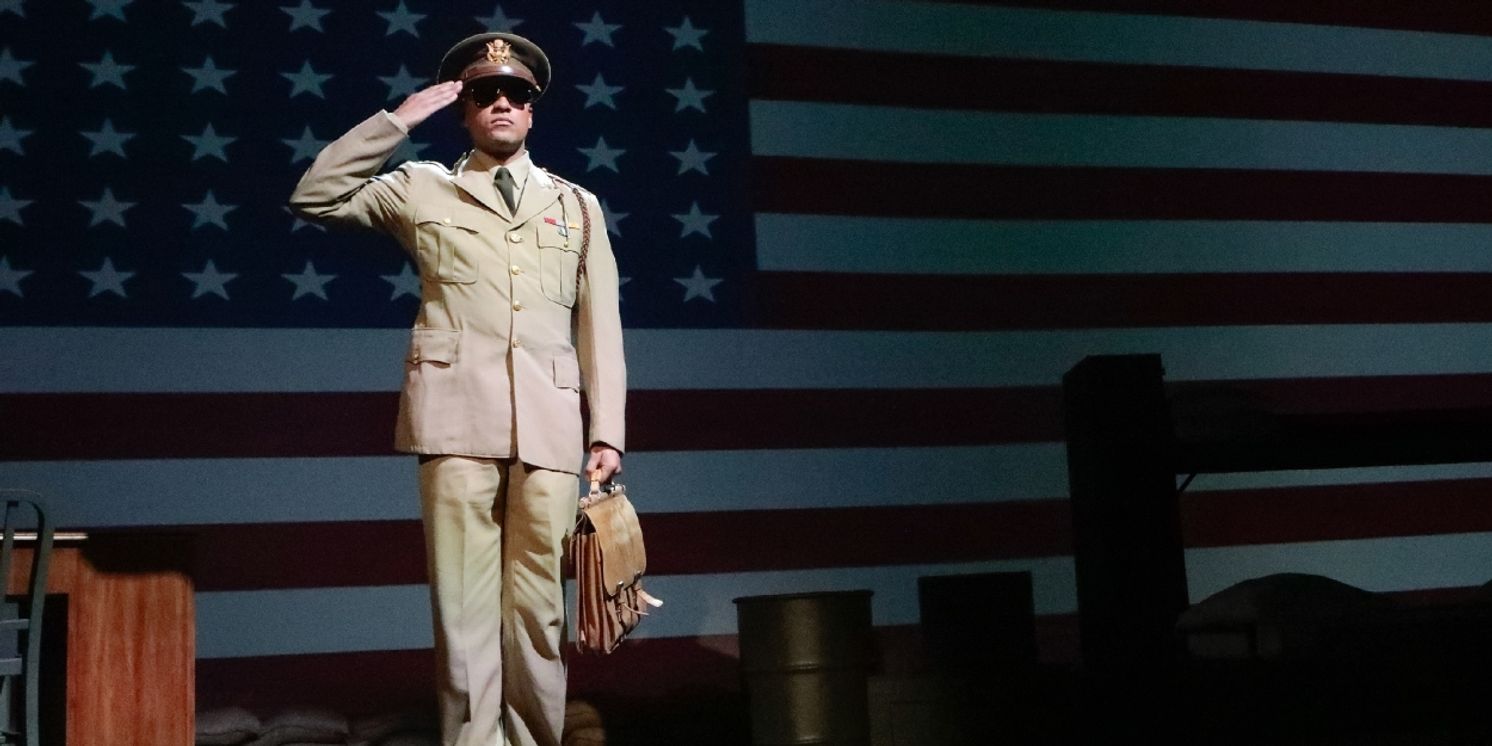Review: A SOLDIER'S PLAY at Westcoast Black Theatre Troupe
What did our critic think of A SOLDIER'S PLAY at Westcoast Black Theatre Troupe?

A Soldier’s Play was originally performed off Broadway, opening in November 1981 through January 1983 after 468 performances. The original cast included Adolph Caeser, Denzel Washington, Larry Riley, and Samuel L. Jackson. The play won the 1982 Pulitzer Prize, as well as the New York Drama Critics Circle Award. A Soldier’s Play was revived off-Broadway for 3 times at Theater Four, Second Stage Theater and The Roundabout Theater Company. It went on to win Tony Awards as well as many accolades during these revivals. In 1984, a film adaptation of the play was made with Caesar, Washington and Riley playing their parts, directed by Norman Jewison.
The story follows a murder investigation at an all-black US Army unit, in the segregation-era South of 1944. Captain Davenport, a black army attorney, is sent to Fort Neal, Louisiana, to investigate the callous shooting of Sergeant Waters. Through interviews with Sarge's men, Davenport learns that Sarge was a vicious man who appeared to serve the white world and condemned his own black roots. Complex feelings and prejudices are explored and addressed to solve the mystery of the pending assassination. Charles Fuller wrote A Soldier’s Story based on his own experience of serving the US Army from 1959 to 1962.
In the staunch opening of Westcoast Black Theatre Troupe’s portrayal of this show, they represent the segregation right off the bat. Soldiers march loudly in formation around the theater with their director’s counting the marching. Once the soldiers retire to their barracks, they are shown at ease, and having “locker room talk” amongst the boys. This jovial scene is contrasted to the attitude of all the soldiers when their Sargent comes in and starts barking orders. Gone are the laughs, ease, and the true character of all of the men on stage. Instead, they are all transposed to targets of the angry bully that Sarge is.
Patrick Robinson portrays Sargent Waters with a pit-bull demeanor and force. Not wanting to get in his clenches, lest you be bitten and spit out, the men of his troupe navigate his abuses. Robinson’s rendering was forceful, but in the end, this tragic figure did gain my sympathies, not just because he is dead but because he was so hateful, especially to himself.
Captain Davenport, portrayed by Michael Mejia-Mendez is the antithesis of Sargent waters. This character is stealth, intelligent and fair. From the crisp and tailored uniform to his direct addressing to the audience there is no doubt who is really in charge of the entire operation and who will be getting to the truth of the matter at hand. The tension that Mendez carries through the stage is felt by the audience until the crime is solved, with a surprising unseen twist!
Every character portrayed shows their prejudice and racism, some towards their own race, and others to those outside of their race. It was Fuller’s goal to show that these beliefs are such a part of the social makeup of the characters’ lives that sometimes they could not see beyond those beliefs. Fuller said it took almost 40 years for A Soldier's Story to make it to Broadway because he refused to drop the last line: “You'll have to get used to Black people being in charge.” This is a tragedy in and of itself because this is a play worth seeing and taking time to think about.
A Soldier’s Play will be at WBTT through February 18th. Tickets are available for matinee and evening shows at Events for Westcoast Black Theatre Troupe (salesforce-sites.com)
Reader Reviews
Videos

